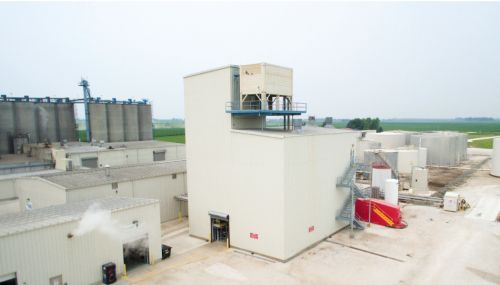All
Bioheat: New York’s Real, Readily Available Carbon Solution
by Rocco Lacertosa, CEO, New York State Energy Coalition

A North Babylon homeowner wanted a green heating solution. What he did not realize was that he already was using green energy with his existing heating equipment. Unfortunately for this consumer, the promise of “low-cost” electric heating went unfulfilled.
Across downstate New York — from Westchester, through New York City, to Nassau and Suffolk — heating companies have transformed heating oil into a fuel that is now cleaner and more environmentally friendly than ever. Seventy percent of New York’s heating oil is consumed downstate and delivered by main street businesses that have been passed down through generations. They have personal relationships with their customers, know them by their first names and in many cases have the keys to their homes so they can respond to service calls if the customer is not present. I am not sure if this is the case with other energy providers.
New York City’s heating sector has been using ultra-low sulfur, renewable biodiesel for home heating since 2012. That initiative was spearheaded by the heating oil industry. Since 2000, the industry has invested over $20 million to enhance heating appliance efficiency and develop Bioheat, the blend of biodiesel with heating oil. These initiatives have helped reduce heating oil consumption by 40%, lowering average household use from 1,200 to 700 gallons per year. Westchester, Nassau, and Suffolk counties adopted biodiesel standards in 2017, which means that all dealers in the downstate region now deliver at least a 5% blend – some as much as 20%.
On average, biodiesel and renewable diesel burn 73% cleaner — across the entire CO2e greenhouse gas (GHG) spectrum — than the heating oil they replace on a gallon-for-gallon basis. In addition to burning cleaner, the next best thing about using Bioheat is that there is no need to change the heating system to use the fuel. The transition is seamless and can be done with little to no cost to the consumer. New York can achieve greater GHG savings by simply requiring higher biofuel blends, as is proposed in NYS Senate Bill S3321. This legislation would require all heating oil in the state to contain 5% biodiesel or renewable diesel by 2022, 10% by 2025 and 20% by 2030.
With these simple changes, we can instantly bring cleaner heating to 1.5 million New York homes that consume 1 billion gallons of heating oil annually and account for 20% of the state’s housing stock.
As renewable, drop-in replacements for heating oil, biodiesel and renewable diesel are made from used cooking oil, animal fats, and agricultural byproducts. The feedstocks have become increasingly diversified, with waste products making up an increasing volume. Biodiesel offers an especially effective outlet for fat-based waste streams that carry substantial disposal costs. Thus, with biodiesel, there is no food-for-fuel issue. Additionally, federal and state laws prohibit palm oil in biodiesel production, protecting the Earth from deforestation.
The New York State Energy Coalition (NYSEC) is a member of the National Energy & Fuels Institute and participated in its Heating Oil Industry Summit in September 2019. This resulted in the adoption of a resolution, supported by NYSEC, in line with the state’s goals to reduce GHG 40% by 2030 and achieve net-zero by 2050. Bioheat is the key to unlocking these goals.
New York State needs Bioheat because it is a fuel for the future that is available today and does not require multi-thousand-dollar investments that take many years to pay for themselves. Bioheat is good for the environment, the economy, and all of New York, right here, right now!
Related Posts
 Why Quality Matters in Your Biofuel Blends
Why Quality Matters in Your Biofuel Blends
Posted on June 25, 2025
 HEAT Show Gears Up
HEAT Show Gears Up
Posted on June 25, 2025
 What’s Next in Boiler Technology
What’s Next in Boiler Technology
Posted on June 25, 2025
 How Intelligent Are Your Integrated Customer Platforms?
How Intelligent Are Your Integrated Customer Platforms?
Posted on June 25, 2025
Enter your email to receive important news and article updates.
